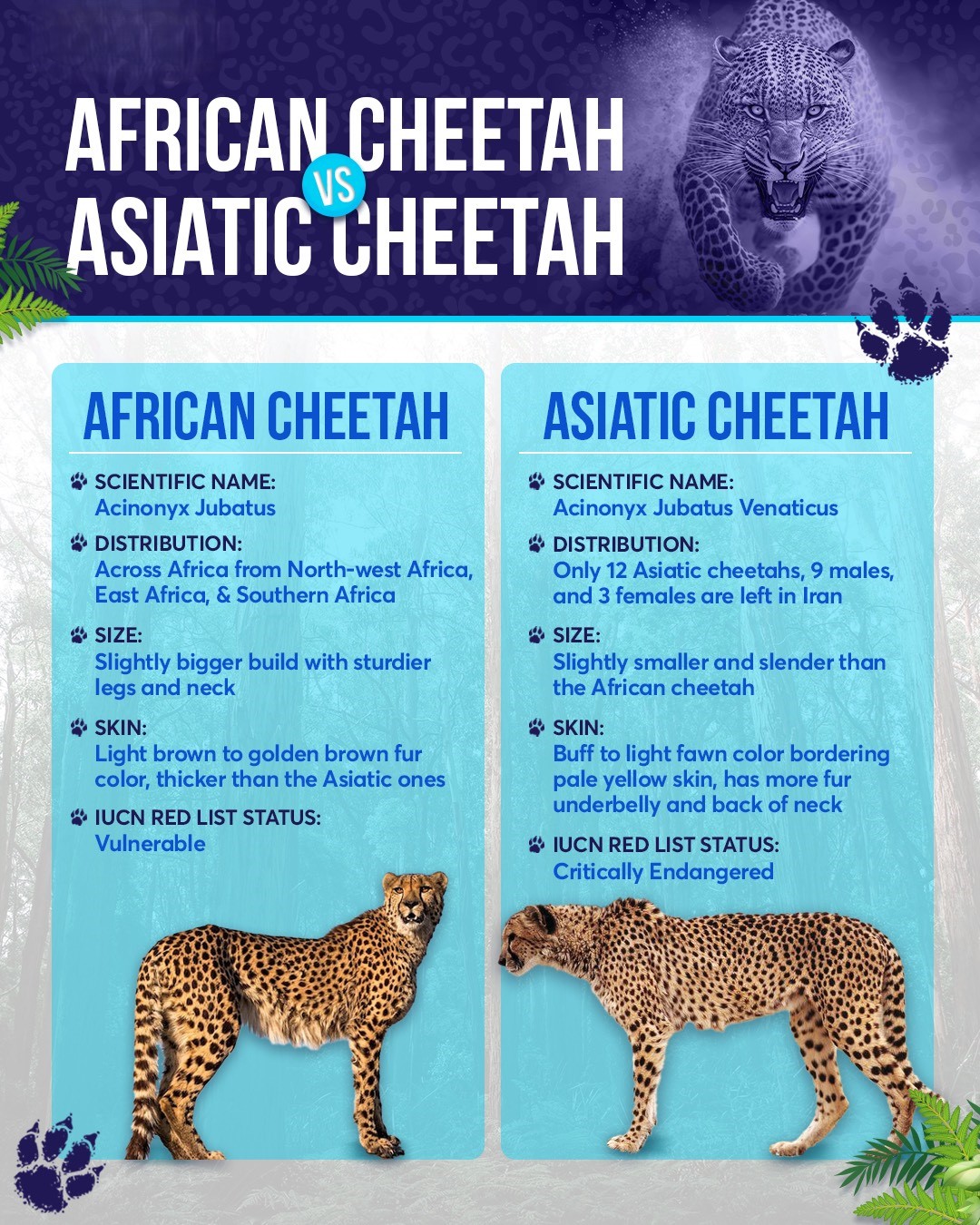Context
A recent study by the Centre for Wildlife Studies (CWS), published in Frontiers in Conservation Science, has raised critical concerns about India's translocation of African cheetahs. Titled Delineating the Environmental Justice Implications of an Experimental Cheetah Introduction Project in India, the study questions the project’s ecological, ethical, and welfare impact, casting doubts on its long-term viability.
Key Findings
1. High Mortality Rate
The project has seen a much higher mortality rate than expected. While the target survival rate was 85%, actual figures show a concerning 40% to 50% mortality rate in the first phase.
2. Welfare Challenges and Stress
The cheetahs from Namibia and South Africa have undergone extreme stress, with over 90 instances of chemical immobilization and frequent veterinary interventions. Their continued medical supervision raises concerns about their adaptability and well-being in an unfamiliar environment.
3. Ecological Unsustainability
With only around 6,500 mature African cheetahs left in the wild, relying on a continuous supply from Southern Africa is unsustainable. The study warns that this could further strain already vulnerable cheetah populations.
4. Ethical Concerns
The project’s dependence on translocating cheetahs from their natural habitats has raised ethical questions. Removing individuals from vulnerable populations for experimental reintroduction may worsen conservation challenges rather than help them.

The study advocates for a more inclusive conservation approach—one that integrates diverse knowledge systems, cultural values, and local perceptions of wildlife. Instead of relying on artificial relocation, it suggests fostering shared spaces where humans and wildlife coexist without distress or conflict. Conservation strategies should also involve local communities in decision-making to ensure sustainable and ethical wildlife management.
About Project Cheetah
Launched in 2022, Project Cheetah aims to reintroduce cheetahs, extinct in India since 1952, by relocating individuals from Africa.
· The initiative seeks to restore ecological balance, enhance biodiversity, and boost tourism.
· The first batch of cheetahs arrived at Kuno National Park from Namibia in 2022, followed by another from South Africa in 2023.
Conclusion
The translocation of African cheetahs to India remains a contentious issue, with significant ecological and ethical concerns. This project underscores the need for a holistic conservation approach—one that prioritizes animal welfare while ensuring environmental sustainability. Moving forward, re-evaluating such initiatives through participatory and evidence-based frameworks is essential to benefit both wildlife and local communities in the long term.






